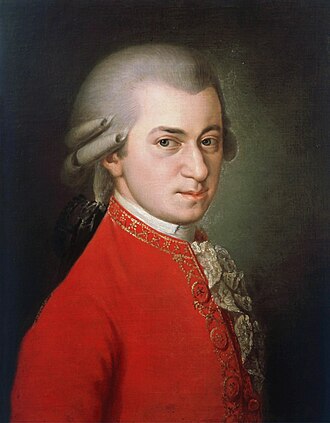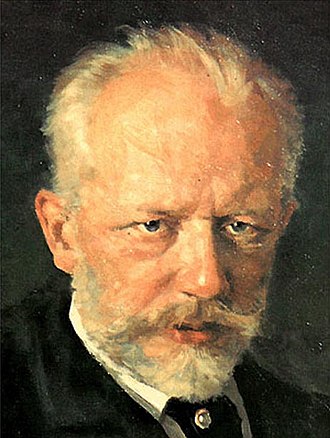Bach, Johan Sebastian (1685-1750)
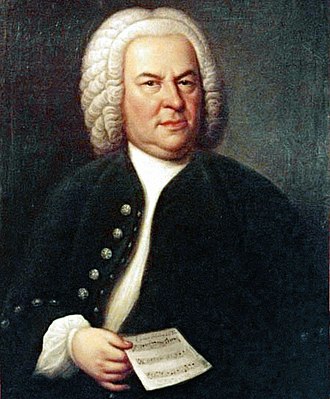
|
He was the youngest son of Johann Ambrosius Bach. When he was ten he was orphaned and went to live with his elder brother Johann Christoph. Bach was more well known when he was alive for being a great organ player than for being a composer.
Bach had three main jobs in his career. His first job was to be organist and composer in the court of the duke of Weimar. This job brought him fame as an organ virtuoso, and during his time in this job he composed much of his keyboard music.
Bach's second job was to provide music to the Prince of Anhalt-Cöthen. Since the prince liked a type of music called chamber music Bach was kept busy composing this type for the prince.
When he was 38, Bach became the cantor for the St. Thomas church in Leipzig. As cantor he got to compose all the music for four churches each week. He also composed music for special occasions such as weddings and funerals. He also picked, trained, and conducted the choirs for all four churches and later took on the job of directing a university musical group that gave regular concerts.
He is considered one of the greatest religious composers in history. He believed that music must serve the Glory of God. One of his most famous works is a prelude piece based on the well known hymn tune “A Mighty Fortress Is Our God”.
Another of Bach's best known works is a series of six concertos called the Brandenburg Concertos. These concertos are interesting in the fact that they feature the entire orchestra section by section instead of one or two solo players.
Bach once wrote - “The aim and final reason of all music should be nothing else but the Glory of God and the refreshment of the spirit”.
|
Handel, George Frederic (1685-1759)

|
Handel was born in Halle, Germany. His dad was reasonably well off, and did not think that music was a suitable profession for George. He wanted his son to be a lawyer.
After only one year in university, Handel moved to Hamburg, where he joined the opera orchestra playing violin. He composed his first opera at the age of twenty which was a big hit. He spent the next three years composing opera in Italy where Opera was really popular.
He moved to England after this and took a job as composer of opera music for a company trying to bring Italian opera to England. Even though Handel composed some very good opera music at this job, it never really got as popular in England as it was in Italy so the company failed.
Handel then started composing a type of music called Oratorio. Oratorios started out as sacred opera, but changed by dropping the acting parts, the stage scenery and backgrounds, and the costumes. Oratorios became a large piece of music that told a biblical story. Often these were grand works using an orchestra, large choir, organ, and soloist singers.
Handel's most famous oratorio is called “Messiah”, from which almost everyone can remember the “Hallelujah Chorus”. When Handel had finished that chorus, he tearfully told a servant “I did think I did see all Heaven before me and the Great God Himself!”
|
}
Beethoven, Ludwig van (1770-1827)
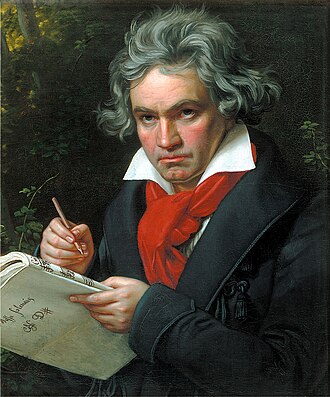
|
Beethoven was born in Bonn, Germany. His father and grandfather were both singers at the court of the prince of Cologne. By age eleven and a half he was the assistant organist at the court chapel and by twelve he had published some music.
Beethoven was then shattered to realize that he was loosing his hearing. By 1802 at the age of 32, he had decided to retire, but after a while the will to create music was so strong that Beethoven continued to compose without hearing. He envisioned the musical beauty all the more vividly in his mind since he could not hear it.
His two best know compositions are his Fifth and Ninth Symphonies. The entire fifth symphony is united as a musical idea by the four notes heard at the beginning of the piece. His ninth symphony is known for its ending piece which includes a choir singing “Ode to Joy”.
|
Chopin, Frédéric François (1810-1849)

|
Chopin is considered the national composer of Poland, even though he was only half polish. His father was French, but had emigrated to Poland and married Frédéric's mother.
He was taught music in Warsaw, Poland, but left for Paris at the age of 21 and spent the rest of his career there in France.
Chopin is best known as a composer of music for the piano. He is, in fact, called “the poet of the piano”. A piano in a home in Chopin's time was the entertainment center for the family.
His music is known for performing it with the characteristic of tempo-rubato - “borrowed time”. The accompaniment, usually in the left hand, was played in strict time, while above it, the right hand melody might fall behind or hurry ahead a little bit. In either case, the borrowing had to be paid back by the end of the phrase.
Chopin wrote a number of piano pieces called Nocturnes, meaning “Night Music”. He wrote his most well known Nocturne (in C minor) in 1841.
|
Schubert, Franz (1797 – 1828)
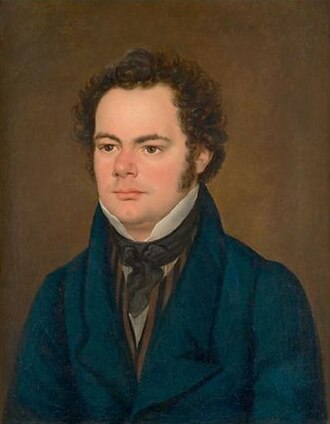
|
The son of a schoolmaster, he showed an extraordinary childhood aptitude for music, studying the piano, violin, organ, singing and harmony.
Schubert composed symphonies and chamber music, but is best known for composing over six hundred Lieder (German for “songs”).
These songs were composed as a vocal solo with piano accompaniment.
Many were written using the words of existing poets and poems in this time period. The musics melody and accompaniment were written with an attempt to portray the themes and ideas of the poetry in music as well.
One of Schubert's famous songs is called der Erlkönig, which is written to an eerie poem by Goethe, based on a legend in which anyone who is touched by the king of the elves will die (der Erlkönig is German for the elf king).
The way that Schubert wrote the music to portray the poem is very interesting. The piano sounds the horses hooves at a gallop while the singer sings the voices of the characters in the poem. This song is often listed as an example of this type of music.
|
Mozart, Wolfgang Amadeus (1756 - 1791)
Haydn, Joseph (1732 - 1809)
Tchaikovsky, Pyotr Ilyich (1840 - 1893)
Many more composers articles have been written for wikipedia.
The Composers category in Wikipedia lists composers grouped by musical era.
